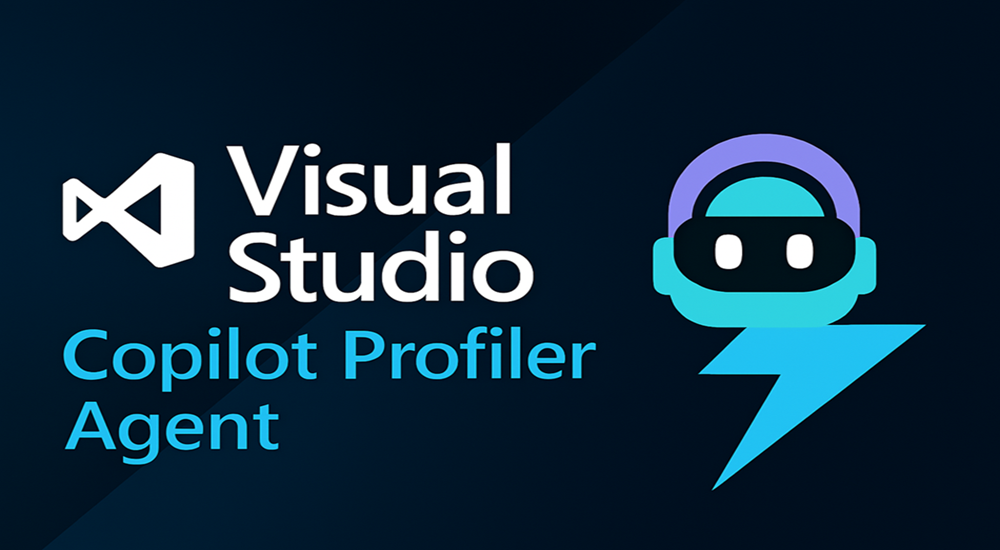Introduction
Debugging is a fact of life for every developer. We spend hours chasing down elusive bugs, adding breakpoints, sprinkling in Console.WriteLine statements, and scrolling through endless stack traces. Profiling performance can be even more frustrating tools exist, but making sense of the raw data often feels like trying to read tea leaves.
But what if you had a performance engineer sitting next to you, pointing out exactly where your app is wasting time or memory, and suggesting practical fixes? That’s the promise of the Copilot Profiler Agent in Visual Studio, an AI-powered companion that brings debugging and performance tuning into the modern age.
Traditional Way of Debugging & Profiling Without AI
Traditionally, debugging and profiling in .NET look something like this:
- You hit a breakpoint and step through your code line by line.
- You open the Performance Profiler to check CPU usage or memory allocations.
- You try to connect the dots between what the profiler shows and what your code is actually doing.
It works, but it’s slow. And unless you’re already a performance expert, it’s not always clear which numbers matter or how to act on them.
Meet the Copilot Profiler
The Copilot Profiler Agent changes the game. It’s built right into Visual Studio and works alongside GitHub Copilot. Instead of manually digging through profiling reports, you can simply ask it questions in plain English:
- “Why is my app slow?”
- “What’s causing this spike in memory usage?”
- “Can you suggest improvements for this code path?”
Behind the scenes, the Profiler Agent analyzes CPU and memory data, highlights the real bottlenecks, and most importantly, offers concrete suggestions for fixing them. It doesn’t just tell you something is wrong; it helps you make it right.
Using it is as simple as asking a question in Copilot Chat. For example:
- Tag it directly with:
@profiler Why is my app slow? - Or just type a plain question in agent mode, like: “Why is my frame rate dropping?”
(Note: make sure the Profiler Agent is turned on in the Copilot Chat tool menu before you start.)
Key Features That Make a Difference
- CPU & Memory Analysis
Spot hotspots in your code and see where resources are being wasted. - Actionable Suggestions
Instead of raw numbers, you get real-world fixes like replacing an inefficient LINQ query or rethinking object allocations. - Benchmark Integration
The Profiler Agent can generate BenchmarkDotNet tests to measure performance before and after your changes. - Validation of Improvements
No more guesswork. You’ll know if your fix actually worked, backed by data. - Seamless Experience
All of this happens inside Visual Studio. No context switching, no extra setup.
A Real-World Example
Imagine you’re working on a .NET API that’s running slowly under load. After enabling the Copilot Profiler, you ask:
“Why are my requests taking so long?”
The agent highlights a LINQ query that’s creating unnecessary object allocations on every request. It explains the issue, suggests a more efficient rewrite using Span<T>, and even generates a benchmark to prove the new version is faster.
The result? A 40% speed boost without hours of manual digging.
Limitations of Copilot Profiler
At the time of this article’s writing, the Copilot Profiler focuses on two main areas:
- High CPU usage
- Memory allocations
It doesn’t yet handle every performance scenario, such as threading, async deadlocks, or distributed tracing, but Microsoft has hinted that more capabilities are forthcoming. And as with any AI tool, you should always validate its suggestions before shipping changes.
Why This Matters
For .NET developers, this is more than just a shiny new feature. It represents a shift in how we approach debugging and optimization:
- Accessibility: Even developers new to profiling can uncover real bottlenecks.
- Productivity: Less time sifting through reports, more time writing code.
- Confidence: Benchmarks validate your fixes, so you know you’re moving in the right direction.
Conclusion
Debugging and profiling will always be part of development, but they don’t have to be painful. With the Copilot Profiler Agent in Visual Studio, you can go from finding bugs to fixing bottlenecks faster than ever before. It’s not just about resolving issues; it’s about making your apps run more smoothly, your workday will be more productive, and your development process a little less frustrating.
If you haven’t tried it yet, fire up the latest Visual Studio, enable Copilot Profiler, and let it guide you to better, faster .NET code.
Reference
